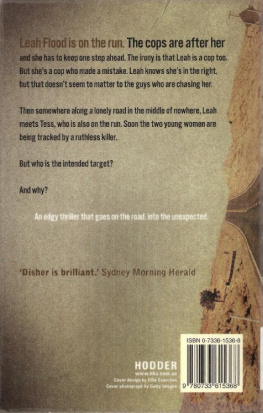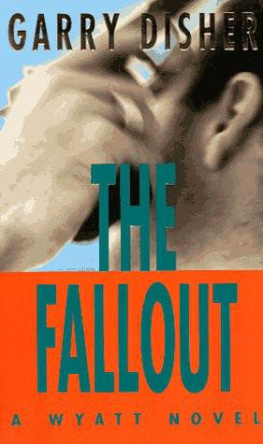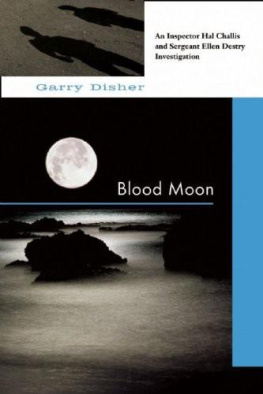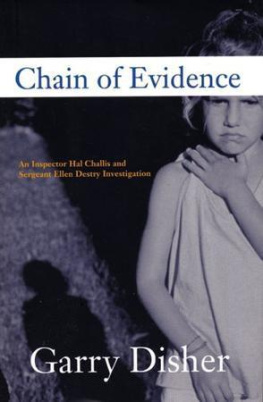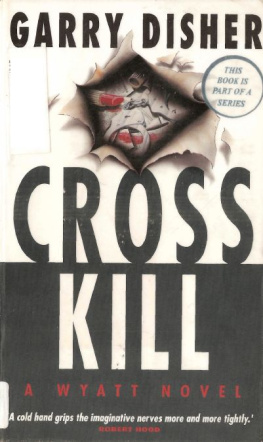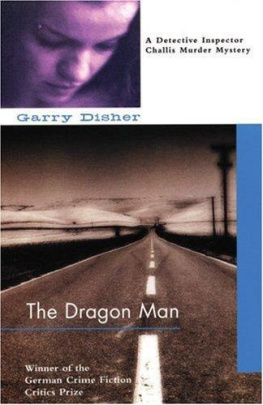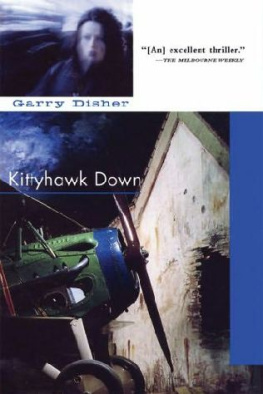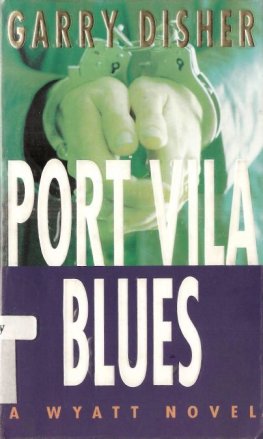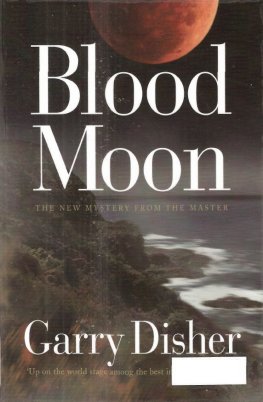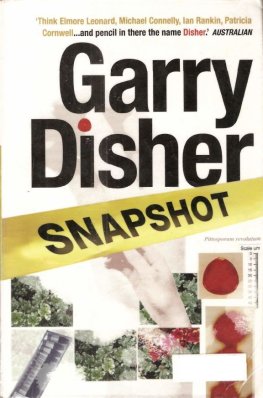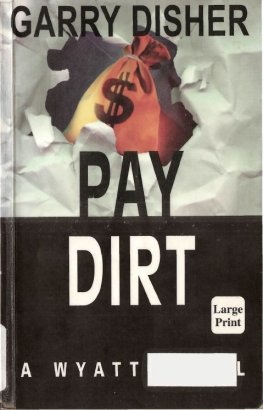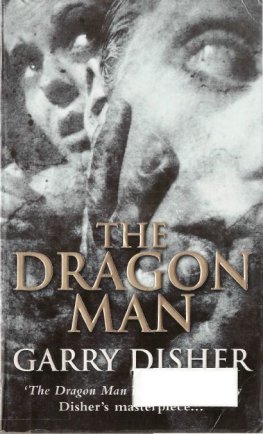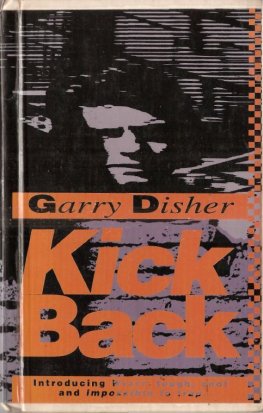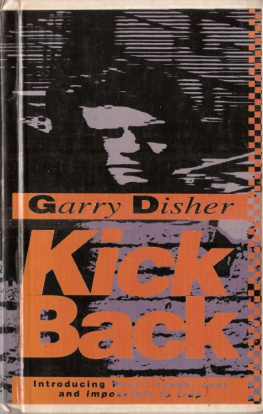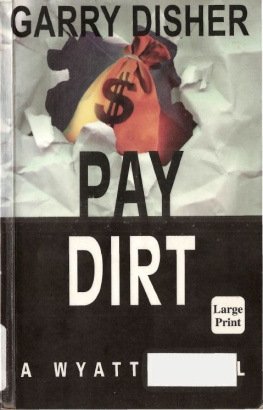Garry Disher - Two-way cut
Here you can read online Garry Disher - Two-way cut full text of the book (entire story) in english for free. Download pdf and epub, get meaning, cover and reviews about this ebook. year: 2004, publisher: Hodder, genre: Detective and thriller. Description of the work, (preface) as well as reviews are available. Best literature library LitArk.com created for fans of good reading and offers a wide selection of genres:
Romance novel
Science fiction
Adventure
Detective
Science
History
Home and family
Prose
Art
Politics
Computer
Non-fiction
Religion
Business
Children
Humor
Choose a favorite category and find really read worthwhile books. Enjoy immersion in the world of imagination, feel the emotions of the characters or learn something new for yourself, make an fascinating discovery.
- Book:Two-way cut
- Author:
- Publisher:Hodder
- Genre:
- Year:2004
- Rating:5 / 5
- Favourites:Add to favourites
- Your mark:
- 100
- 1
- 2
- 3
- 4
- 5
Two-way cut: summary, description and annotation
We offer to read an annotation, description, summary or preface (depends on what the author of the book "Two-way cut" wrote himself). If you haven't found the necessary information about the book — write in the comments, we will try to find it.
Two-way cut — read online for free the complete book (whole text) full work
Below is the text of the book, divided by pages. System saving the place of the last page read, allows you to conveniently read the book "Two-way cut" online for free, without having to search again every time where you left off. Put a bookmark, and you can go to the page where you finished reading at any time.
Font size:
Interval:
Bookmark:
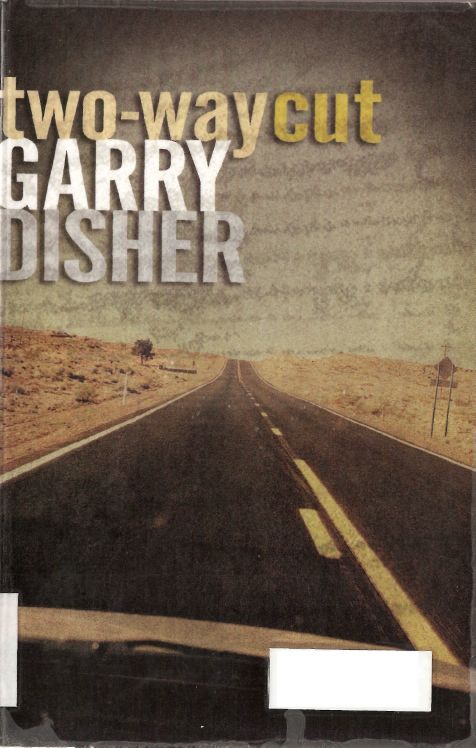
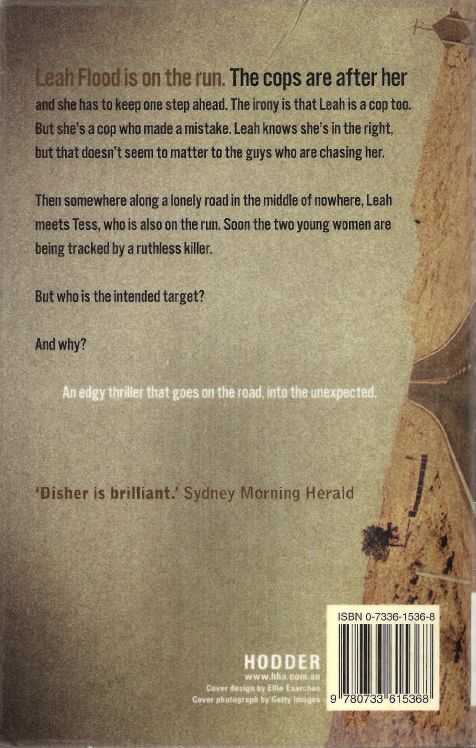
* * * *
Two-Way Cut
By Garry Disher
Scanned & Proofed By MadMaxAU
chapter 1
Thething is, shed moved into this house only a few days ago, and yet theyd foundher. Before that thered been another house, and before that a couple of cheapand nasty flats. Cheap and nasty houses, too, so who was she kidding? The thingis, theyd found her at each of her boltholes and told her she was a deadwoman.
This time theyd buried her car in atruckload of sand and placed a cardboard coffin on top of the heap. There was adoll dressed in a blue uniform cap and overalls inside the coffin. Overallsbecause some of them thought she was a lesbian. Lived alone, no boyfriend, didntmix, she had to be a dyke, right?
She was actually straight, but that wasntthe issue, it was just their way of putting the boot in further. Some of themwanted her dead, and they were cops, and knew how to find her. Knew how to makeher dead.
So there and then Leah Flood walkedaway from all of that. Literally. No more flats or houses in this city. Sheshoved clothes, toiletries, Swiss Army knife, sleeping-bag, tent and a coupleof paperbacks into her pack and hit the road. Leah didnt look back, not evenat her buried car. It was a good car but a rope around her neck now. A rattlyred MG with personalised plates, LEAH82 for the year she was born, shed notlast five minutes on the open road.
Hitchhiking was a different matter.It was November, warm days and cool evenings, so she could camp in barns, underbridges, amongst ti-trees along the coast. Rent an onsite caravan or cabinwhenever she needed to treat herself or put her clothes through a washingmachine. Pay cash for everything so that she wouldnt leave a trail ofelectronic records.
Lose herself, in other words. Vanishoff the face of the earth.
And so the first thing she did whenshe left the house, ignoring the stares of the neighbours, was to take a busten blocks to Whitehorse Plaza, where she found a branch of the ANZ and cleanedout her savings. Five thousand dollars. Could she exist on twenty dollars aday? That would buy her over a year of freedom, and maybe by then her enemieswould have forgotten her.
Next she altered her appearance. Herface was well known, so she couldnt do much beyond going into a salon andasking them to cut her hair into a pageboy and put a red rinse through it. Shedidnt need spectacles but bought a pair of sunglasses with bright green framesto distract attention from her features.
She examined herself in a restroom,liking the effect. Maybe with new looks Ill get a new personality, shethoughtthen rejected the notion. She needed to be the person shed alreadybecome these last few months: vigilant, determined, solitary.
Finally she left the shopping-centreand boarded a bus and spotted the Subaru again. Shed first seen it from thebus window on the way to the shopping-centre and given it the benefit of thedoubt, but here it was again and Leah didnt believe in coincidences. It pulledin behind the bus and tailed it, staying well back. Leah thought rapidly. Sheneeded access to an exit and a line of sight along the length of the bus, andso she moved seats, stationing herself on a side-facing seat near the driversdoor. Would they try to take her on the bus? Phone ahead and put someone onboard? She glanced around at the other passengers: a teenage girl with hermother, and an elderly man with a walking-stick. Leah couldnt expect much helpfrom them.
The minutes passed and the busbelched through the endless tracts of tiled roofs and drought-blighted lawns,more passengers embarking, and then on the other side of the river the housesgrew smaller and older, the traffic heavier, and the air more toxic.Collingwood and then Fitzroy, two of the poorest of the inner suburbs, but inpockets also rich and desirable: certain streets with gentrified houses,outdoor cafs, expensive clothing, fancy coffee, Porsches at the kerb, theoccasional TV star. But none of that interested Leah. In Fitzroy she couldcatch a tram to the main train station, which would give her access to thegrasslands at the edge of Melbourne and the endless roads to the west. Juststick out her thumb and go.
But she couldnt afford to let themen in the Subaru know she was going to the station. Several people got readyto alight at the stop for Brunswick Street. Leah let them get off first. Shedidnt want them behind her but on the street where they could shield her. Shepaused on the top step, her head out, glancing back along the flank of the bus.The Subaru was waiting at the kerb a short distance behind.
She stepped down, jostling her waythrough a clump of pedestrians, and turned into Brunswick Street. A hundredmetres down she paused outside a bookshop and gazed, without taking in thedetails, at a poster advertising the latest Isobelle Carmody novel, thenswitched direction and darted across to the other side of the street. She ranthen, back toward Johnston Street, as if to catch the lights.
Leah was going to flush them out,see how good they were, see how many they were.
She turned right into JohnstonStreet, jogging along it to a sidewalk caf, where people were drinking coffeeunder striped umbrellas, and ducked left into a narrow side street. Halfwaydown she paused and looked back. The street was clear.
But she knew she hadnt lost them.By running shed announced herself. They were out there, regrouping, setting upthe next stage. She had to nip this in the bud, and the only way to do that wasto let herself be the bait.
Back on Brunswick Street she headedsouth towards the city centre, keeping pace with the crowd. Half of thepedestrians were locals: yuppies, students and wannabe artists; the other halfwere tourists from the suburbs trying to look cool. In other circumstances,Leah would have found them irritating, but today she needed themas potentialwitnesses, obstacles or saviours.
She edged through some backpackershuddled outside an internet caf. There are ways of tailing people so you cantbe spotted and ways of spotting a tail. A careless tail will always turn awayabruptly, drop to fiddle with a shoelace, pause outside an unlikely shopwindow. Without drawing attention to herself, Leah began to scrutinise thepeople around her. She used reflective surfaces: car and shop windows, peoplessunglasses, store mirrors, car chrome and duco. Now and then she stoppedabruptly and doubled back to see if that disconcerted anyone, made anyonechange direction abruptly with her. She entered a vast, noisy pasta restaurantby one door, studied the chalked menu for a while, then left by way of an alleyoutside the kitchen. When a taxi pulled up outside a pub to discharge apassenger, she got in, told the driver to U-turn, and watched to see how herpursuers reacted.
Nothing. They were good. She didnt seea thing that looked wrong.
She got out again near the bookshop,gave the complaining driver twenty dollars, and retraced her movements alongBrunswick Street. Leah was prepared to do this for two or three hours ifnecessary. She assumed theyd have more than one man on her. There might evenbe a tail in front of her. Leah didnt care who or where or when, she wanted toisolate just one man, disable him, and ask him some hard questions.
But they were good. Leah wentthrough the main strip of cafs and boutiques a second time, heading toward thecity, and was several blocks along, adjacent to the Housing Commission flats onGertrude Street, before she spotted a tail. It was chance, and her instincts:just ahead of her a woman with a basket of dirty washing had propped open theglass-paned door of a laundromat with her hip, angling the glass sufficiently togive Leah a clear image of the man a few metres behind her.
Next pageFont size:
Interval:
Bookmark:
Similar books «Two-way cut»
Look at similar books to Two-way cut. We have selected literature similar in name and meaning in the hope of providing readers with more options to find new, interesting, not yet read works.
Discussion, reviews of the book Two-way cut and just readers' own opinions. Leave your comments, write what you think about the work, its meaning or the main characters. Specify what exactly you liked and what you didn't like, and why you think so.

